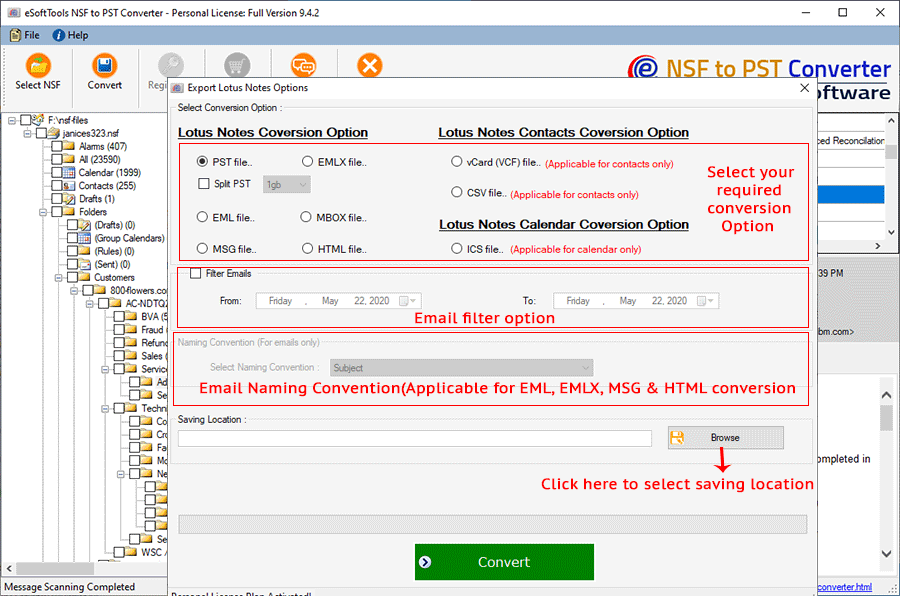How to Open Lotus Notes Archive Files in Outlook PST?
Lotus Notes stores archived emails in NSF format, which is not supported by Microsoft Outlook. To access these archived emails in Outlook, users need to convert NSF files to PST format. A manual approach involves exporting NSF emails to CSV format and then importing them into Outlook, but this method often results in data loss, missing attachments, and broken folder structures. Moreover, it does not preserve the original email formatting, metadata, or folder hierarchy, making it an unreliable option for users who want a seamless transition.
A better and more efficient solution is using eSoftTools NSF to PST Converter. This tool enables users to directly convert NSF archive files to PST format while maintaining email integrity. It supports bulk conversion, ensuring all emails, attachments, and folders are transferred without errors. Additionally, it works with all versions of Outlook, including 2016, 2019, and 2021, allowing users to open Lotus Notes archives in Outlook effortlessly. With a simple and user-friendly interface, both technical and non-technical users can perform the migration without any hassle.
🔗 Complete Guide: Open Lotus Notes Archive Files in Outlook PST

Comments
To open Lotus Notes archive files in Outlook PST, especially if you have a bulk collection of NSF files, you should use Softaken NSF to PST Converter, which supports batch conversion without any limitations on file size. You will need Lotus Notes installed on your system, and it preserves your data integrity during the conversion. The tool allows you to load your NSF files, preview all your data (emails, contacts, attachments, calendars), and then convert it to PST format. Once converted, you can open the PST file directly in any version of MS Outlook. This app is easily available for all versions of Windows. Additionally, you can take advantage of the free demo edition before purchasing the full version.
visit here: https://www.softakensoftware.com/lotus-notes-to-outlook-converter.html